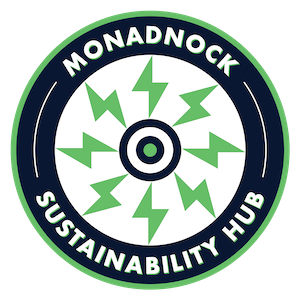On the surface, it may seem like the climate crisis – the fact that we (the human species) are facing dire
consequences if we do not aggressively reduce greenhouse gas emissions – is mainly a political and
environmental problem. After all, climate change has long been known as an “environmental” issue, and
political will or lack thereof is often blamed for our current situation. However, if we truly want to work
towards sustainable solutions to address the climate crisis, we need to address existing racial inequities.
I hope we can all agree that everyone, regardless of skin color, gender, ability, etc., deserves to live in a
healthy environment with access to a quality education and economic opportunity. No one deserves to
live next to a smokestack or a coalmine, in areas where air and/or water are polluted, or where schools
are under-funded. However, black communities and other communities of color have historically faced
barriers to attaining wealth, a quality education, and access to economic opportunities. For example,
federal housing policies have historically favored white home ownership by using redlining to deny
financial services to families in non-white neighborhoods. As an illustration, between 1934 and 1962,
the Federal Housing Authority (FHA) backed $120 million in mortgages, however for the first 30 years of
the program, fewer than 2% of FHA mortgages went to people of color. [1]
Housing policy is just one of many examples of how communities of color have historically been
excluded from opportunities available to others. The cumulative impact of these policies, programs, and
practices is evident today. Black neighborhoods are more likely to be located next to sources of pollution
and have less access to amenities such as parks and grocery stores with healthy food options. [2 , 3] Black
people across the nation have a higher poverty rate and lower educational attainment. According to
data from the 2017 American Community Survey (ACS) 5-year survey, the overall poverty rate in Keene
is 13.7%; however, the poverty rate for black people is 27.64%. The high school graduation rate is
94.21% for white people and 85.61% for black people, and the rate of bachelor degrees is 40.69 among
white people and 12.12% among black people. [4] These trends are not unique to Keene, but rather they
reflect similar statistics from cities across the U.S.
If we want to respond effectively to the climate crisis and work towards a future where we can all thrive,
we cannot leave anyone behind. We need to look at housing affordability, our education system, and
workforce development. We need to consider how our response will affect energy costs and
transportation costs, and what that means for families in our region. In short, we need to make sure that
our work to address climate change will advance racial equity, not ignore it. In doing so, we will bring
more people to the table and hopefully develop strategies and solutions that will have support from
everyone, because they are for everyone. After all, as the slogan from the 2014 People’s Climate March
states, “To Change Everything, We Need Everyone.”
1 – Long Before Redlining: Racial Disparities in Homeownership Need Intentional Policies. www.shelterforce.org/2019/02/15/long-before-redlining-racial-disparities-in-homeownership-need-intentional-policies/
2 – Socioeconomic status and obesity: A review of the literature. https://www.ncbi.nlm.nih.gov/pubmed/2648443
3 – Spatial Disparities in the Distribution of Parks and Green Spaces in the USA. https://www.ncbi.nlm.nih.gov/pmc/articles/PMC3590901/#R57
4 – Keene NH Population. (2019-05-12). Retrieved 2019-10-08, from http://worldpopulationreview.com/us-cities/keene-nh/
Mari Brunner serves on the board of the Monadnock Sustainability Network, a nonprofit that aims to connect, motivate, inform, and inspire local initiatives and actions that support a sustainable community economically, socially, and environmentally (www.greenmonadnock.org). Mari lives in Munsonville, NH and works in Keene.
